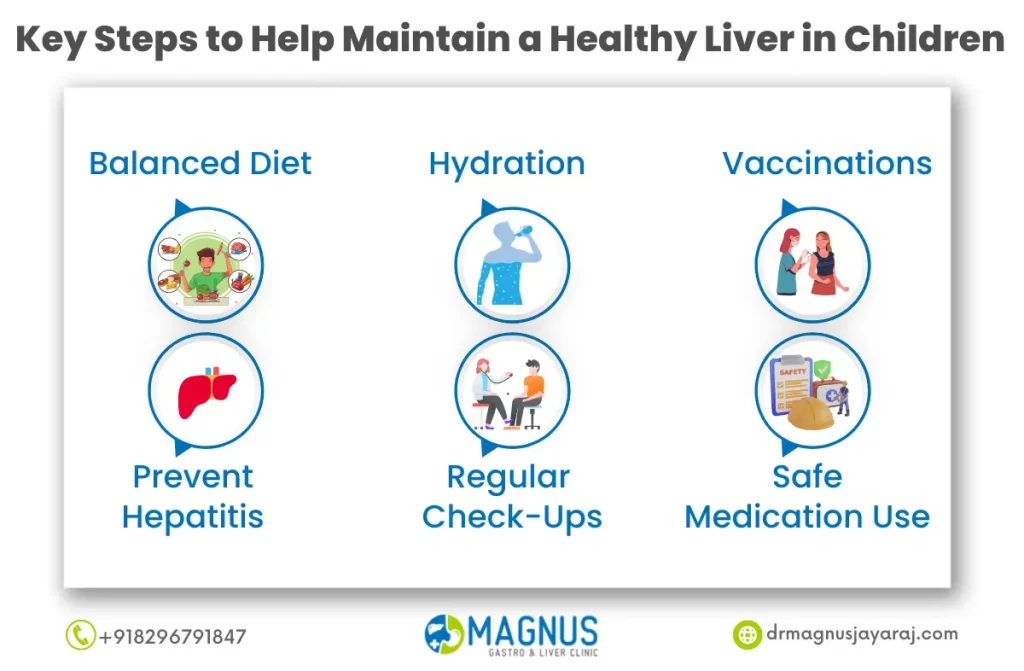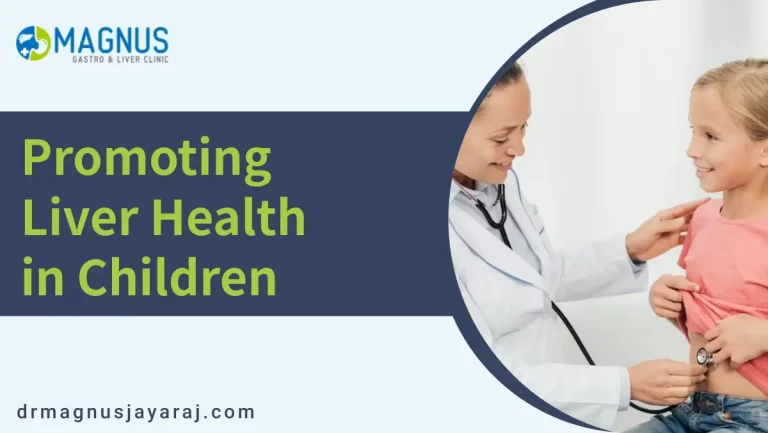The liver plays a crucial role in maintaining our overall health, and this is no different for children. From infancy to adolescence, a healthy liver is vital for growth, development, and overall well-being. Specifically, we will explore the ways parents can actively contribute to their child’s liver health and touch upon the significance of treating liver disease in infants and pediatric chronic liver disease. In this article, we will delve into the importance of promoting liver health in children and address the key concerns surrounding pediatric liver diseases.
Nutrition for a Healthy Liver
Nutrition forms the foundation of a healthy liver in children. A balanced diet rich in fruits, vegetables, whole grains, and lean proteins provides essential nutrients that support liver function. Encouraging your child to consume foods low in added sugars and unhealthy fats helps prevent the accumulation of fat in the liver, a condition known as fatty liver disease. By emphasizing a diet high in fiber and nutrients, parents can set the stage for a lifetime of good liver health.

Hydration and Liver Health
Adequate hydration is essential for overall health and maintaining a healthy liver. Encouraging your child to drink water throughout the day helps the liver process toxins efficiently. Water aids in digestion and promotes the elimination of waste products, lightening the load on the liver. Limiting sugary drinks and prioritizing water intake is a simple yet effective way of treating liver disease in infants.
Regular Physical Activity
Physical activity isn’t just beneficial for maintaining a healthy weight; it also supports liver health. Treating liver disease in infants at an early stage reduces the risk of developing fatty liver disease and other liver-related issues. Regular exercise helps improve insulin sensitivity, reduces inflammation, and promotes the efficient functioning of the liver. Encouraging your child to engage in age-appropriate physical activities contributes to their overall well-being, including liver health.
Read also Best Gastroenterologist in Chennai
Monitoring Medication Use
Some medications, even those available over the counter, can affect liver function. As a parent, it’s important to be aware of any medications your child takes and consult a healthcare professional if you have concerns about their impact on the liver. Educate your child about the importance of following dosage instructions and avoiding excessive medication use.
Treating Liver Disease in Infants
Treating liver disease in infants and managing pediatric chronic liver disease requires specialized medical attention. Infants are particularly vulnerable to liver problems due to their developing organs. If you suspect any unusual symptoms in your infant, such as jaundice (yellowing of the skin and eyes), poor weight gain, or excessive fussiness, it’s crucial to seek medical help promptly. Early detection and intervention are key in managing liver diseases in infants.
For children with chronic liver conditions, a multidisciplinary approach involving pediatric hepatologists, nutritionists, and other specialists is essential. Treatment plans may include medications, dietary adjustments, and in some cases, surgical interventions. As a parent, it’s vital to work closely with your child’s healthcare team to ensure the best possible outcomes for their liver health.
Preventing Liver Disease in Children
Prevention is often the best strategy when it comes to liver health. Vaccinations against hepatitis A and B are crucial steps in preventing these viral infections that can affect the liver. Teaching your child about the importance of good hygiene, such as washing hands before meals and avoiding sharing personal items, can also help in treating liver disease in infants.
Conclusion
To conclude, promoting liver health in children is an investment in their future well-being. By focusing on a nutritious diet, regular physical activity, and proper hydration, treating liver disease in infants is made possible. Additionally, staying informed about the signs of liver disease in infants and pediatric chronic liver disease empowers parents to seek timely medical attention when needed. Remember, a healthy liver sets the stage for a vibrant and active childhood, paving the way for a healthier life ahead.
Check out Liver Transplant in Chennai.


